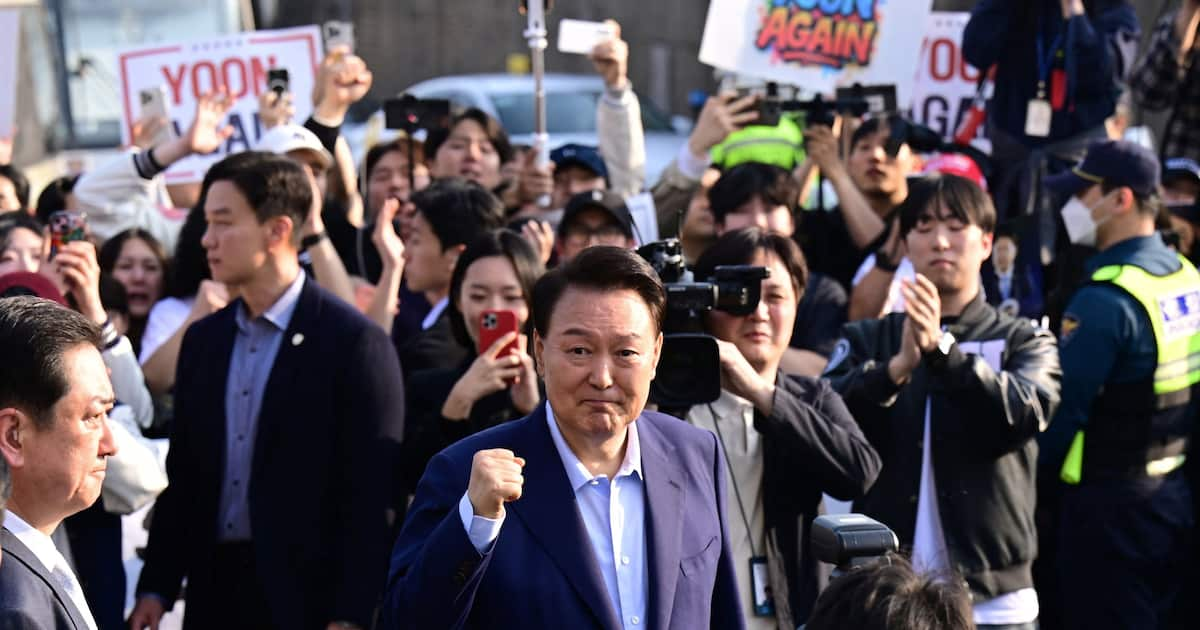Martial Law's Shadow: Korea's Conservative Crisis
South Korea's political landscape is currently shrouded in uncertainty, with the shadow of martial law looming large over the ongoing crisis within the conservative party. Recent events have sparked intense debate and raised concerns about the future of democracy in the nation. This article delves into the key factors fueling this crisis, exploring its implications for South Korean politics and its potential impact on regional stability.
The Roots of the Crisis: Internal Divisions and Scandals
The conservative party, a dominant force in South Korean politics for decades, is fractured by deep internal divisions and plagued by a series of high-profile scandals. These scandals, often involving allegations of corruption, abuse of power, and even links to authoritarian figures from the past, have severely eroded public trust.
Key contributing factors include:
- Leadership struggles: A power vacuum and infighting amongst senior party members have weakened the party's ability to present a united front. The lack of decisive leadership has exacerbated the existing problems.
- Corruption allegations: Repeated allegations of corruption, involving both current and former party officials, have fueled public outrage and damaged the party's credibility. These scandals are actively being investigated, with potential legal ramifications.
- Nostalgia for authoritarian past?: Some critics argue that a segment within the conservative party harbors a nostalgic view of South Korea's authoritarian past, potentially undermining democratic institutions and norms. This is a highly sensitive and debated topic.
- Generational divide: A growing generational gap within the party is hindering efforts to adapt to changing political realities and appeal to younger voters.
The Specter of Martial Law: A Growing Concern
While the threat of a formal declaration of martial law remains unlikely, the rhetoric employed by some hardline conservatives and the perceived erosion of democratic processes have raised significant alarm. The very suggestion of such a drastic measure highlights the deep polarization within South Korean society.
The implications of this rhetoric include:
- Erosion of public trust: The constant discussion of martial law, even if hypothetical, erodes public trust in democratic institutions and the rule of law.
- Increased political instability: The ongoing crisis has fueled political instability, making it difficult for the government to effectively address pressing national issues.
- Impact on regional stability: Given South Korea's geopolitical importance, the internal political crisis could have wider implications for regional stability and international relations, particularly concerning its relationship with North Korea and other regional powers.
The Path Forward: Rebuilding Trust and Strengthening Democracy
Addressing this multifaceted crisis requires a multifaceted approach. The conservative party needs to undergo significant internal reform, prioritizing transparency and accountability. Restoring public trust is crucial, and this necessitates a commitment to democratic principles and the rule of law.
Necessary steps for recovery include:
- Independent investigations: Thorough and transparent investigations into allegations of corruption are essential to restore public confidence.
- Party reform: Significant internal reforms are needed to address the deep divisions within the party and to promote unity.
- Dialogue and reconciliation: Open dialogue and reconciliation efforts are vital to bridging the divides within South Korean society.
- Focus on policy solutions: The party needs to shift its focus towards presenting concrete policy solutions that address the concerns of ordinary citizens.
The crisis facing South Korea's conservative party is far from over. The shadow of martial law serves as a stark reminder of the fragility of democracy and the importance of safeguarding democratic institutions. The path forward requires concerted efforts from all stakeholders to rebuild trust, strengthen democratic processes, and chart a course towards a stable and prosperous future for South Korea.
Further Reading: (Link to relevant news articles and academic studies on South Korean politics)
Call to Action: Stay informed about developments in South Korean politics and engage in respectful dialogue to contribute to a more stable and democratic future for the nation.
